The Liberal government “denounces and condemns” Sunday’s vote for a new legislative superbody in Venezuela that gives President Nicolas Maduro sweeping powers to reshape the country’s political system but will not follow the Trump administration in imposing sanctions on the Maduro regime, a government official said Monday.
The U.S. government branded Maduro “a dictator” Monday and announced that it’s freezing his U.S. assets, following the controversial poll.
“Yesterday’s illegitimate elections confirm that Maduro is a dictator who disregards the will of the Venezuelan people,” said U.S. Treasury Secretary Steven Mnuchin. “By sanctioning Maduro, the United States makes clear our opposition to the policies of his regime and our support for the people of Venezuela who seek to return their country to a full and prosperous democracy.”
Canada supports U.S. sanctions
Canada commends the U.S. action, said a high-ranking Canadian official speaking on background.
“Their (U.S.) sanctions regime makes it easier for them to act swiftly, but we continue to review their sanctions, monitor the situation and evaluate our options,” the official said.
Canadian sanctions are imposed by the cabinet under the United Nations Act (UNA) or the Special Economic Measures Act (SEMA), according to Global Affairs Canada.
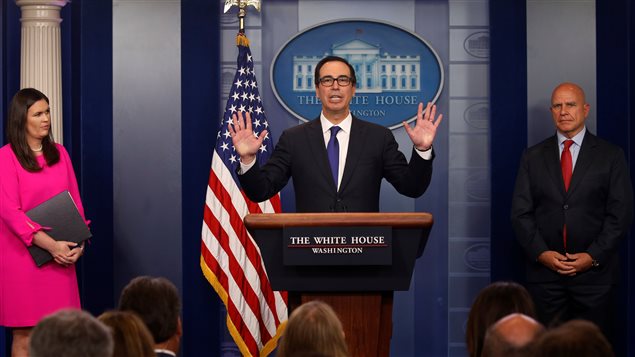
According to Venezuela’s electoral council, more than eight million people, 41.53 per cent of eligible voters, voted on Sunday to create a constitutional assembly endowing the ruling Socialist Party with sweeping powers.
However, Venezuela’s anti-government opposition estimated the real turnout was less than half the official figures.
Sweeping powers
Maduro’s allies won all 545 seats in the newly elected National Constituent Assembly, which will have the power to dissolve state institutions, such as the opposition-run Congress, and dismiss dissident state officials.
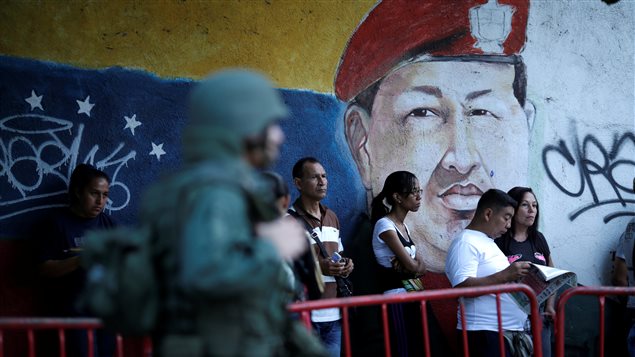
Maduro has said the new assembly will begin to govern within a week. He vowed to use the assembly’s powers to bar opposition candidates from running in gubernatorial elections in December unless they sit with his party to negotiate an end to hostilities that have generated four months of protests, resulting in the deaths of least 125 people and causing nearly 2,000 injuries.
“This constituent assembly will further escalate tensions in the country by robbing the Venezuelan people of their fundamental democratic rights,” Foreign Affairs Minister Chrystia Freeland said in a statement on Sunday.
“Canada laments the loss of life and escalating violence that resulted from today’s undemocratic vote. We once again appeal for calm and for constructive negotiations.”
Canada along with several allies at the Organization of American States, including the United States, had called on the Maduro government to cancel the Sunday’s vote. However, several Caribbean countries, as well as Venezuela’s regional allies such as Bolivia, Ecuador and Nicaragua, refused to join the U.S.-led initiative.
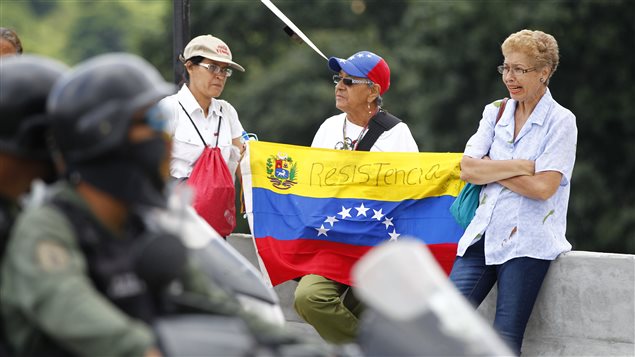
With Sunday’s vote President Maduro and his government took “another step down the path to institutionalize authoritarian rule in Venezuela,” Freeland said.
“Individuals who are undermining democracy and human rights in Venezuela should be held accountable for their actions,” she said.
Cross-party support
The Liberal position on Venezuela enjoys support of the opposition parties on the right and the left of the political spectrum in Canada.
“Everything she’s saying is in line with Canada’s support for a free and fair vote as soon as possible and rejection of this phoney Constituent Assembly, which is really a way of rigging single-party, single-autocrat power,” said Conservative MP Peter Kent, the party’s foreign affairs critic. “Our quibble is that it doesn’t go far enough.”
Freeland’s strong words and support for OAS secretary general Luis Almagro’s program to deal with the crisis in Venezuela are a good first step but Canada can do more, Kent said.
“We could do more on the humanitarian side and we could certainly do more in joining other democratic countries who have already imposed new sanctions on Venezuela or have committed to do so if yesterday’s election actually took place and the government moved forward to replace the legitimately elected members of the National Assembly,” Kent said.
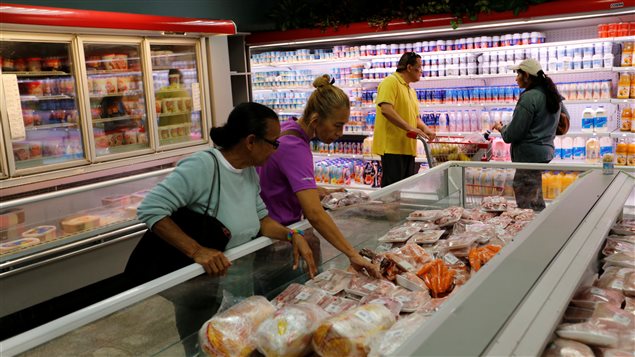
Hélène Laverdière, the foreign affairs critic for the New Democratic Party, said the NDP remains deeply concerned about the human cost of the ongoing political, economic, and humanitarian crisis in Venezuela, which has hit ordinary people hard with shortages of food and medicine.
“On the heels of Sunday’s illegitimate constituent assembly vote, it’s more important than ever for Canada to work with our allies and through multilateral groups like the OAS to secure a lasting resolution to the crisis,” Laverdière said in an emailed statement.
“We would like to see the government be more active in providing humanitarian assistance, calling for the release of political prisoners, the holding of elections and respecting the National Assembly.”
Canada could also boost funding to the Inter-American Commission on Human Rights, which was cut by the previous Conservative government, Laverdière said.
‘Victory for democracy’
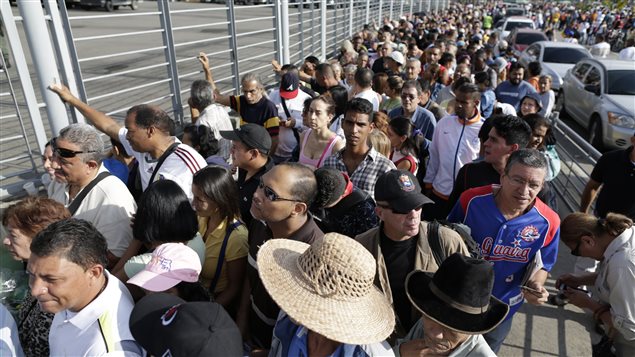
Raul Burbano, program director at Common Frontiers, a working group of Canadian labour and civil rights organizations, said Canada’s position is one-sided and misinformed.
“I think the outcome was a victory for democracy in Venezuela, more than eight million people cast their votes for different members of the constituent assembly,” Burbano said in a phone interview from Toronto.
“It showed that despite Venezuela being in the middle of violence and threats from the opposition of anybody who went out to vote, with difficult economic situation, with a coordinated international attack by media presenting Venezuela in a very unsavoury light, many Venezuelans still took to the streets to participate peacefully, democratically in a way that will determine the future for Venezuela going forward.”
(click to listen to the full interview with Raul Burbano)
ListenWhile Burbano agrees that there is a large and peaceful opposition to the socialist policies of the Maduro government, he argues that the opposition movement has been hijacked by a small group of radical actors who have resorted to violence to advance their goals.
“Unfortunately, those are the groups right now that sort of are running the opposition that have the unconditional support from the United States from the funding perspective, political perspective and I think this is why we’re seeing so much violence and so much division in Venezuela,” Burbano said.
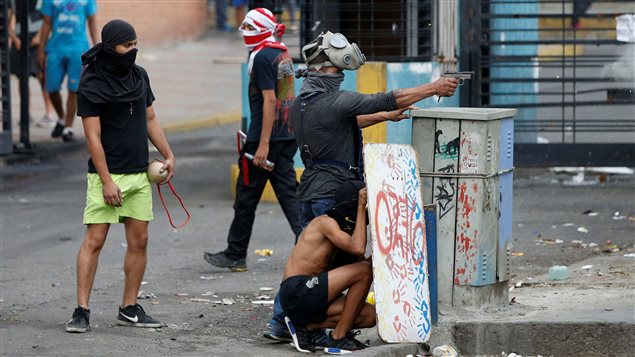
Canada’s position too echoes the demands of these radical opposition groups, he said.
“Just to suggest that for some reason that it’s bad that the Venezuelans undertake a participatory democratic process on national basis when there is a crisis in the country socially and politically, that is completely absurd,” Burbano said.
The Canadian government has also called on President Maduro to immediately release all political prisoners, restore the constitutional rights of Venezuelans and set an electoral calendar.
“The government must enter into meaningful negotiations with the opposition to meet these obligations without delay,” Freeland said.
Maduro, however, has vowed that presidential elections will be held in at the end of 2018 “come rain, thunder or lightning in Venezuela.”
However, he is yet to announce the exact date.
With files from The Associated Press and Reuters
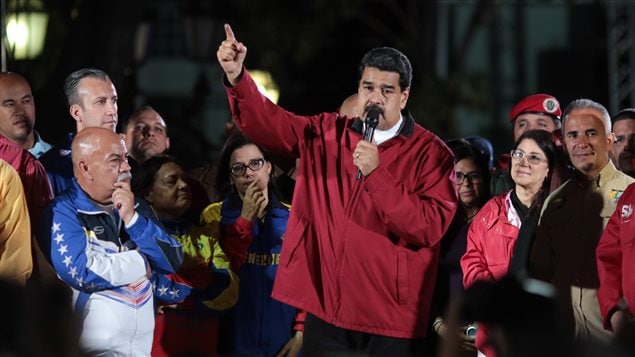






For reasons beyond our control, and for an undetermined period of time, our comment section is now closed. However, our social networks remain open to your contributions.